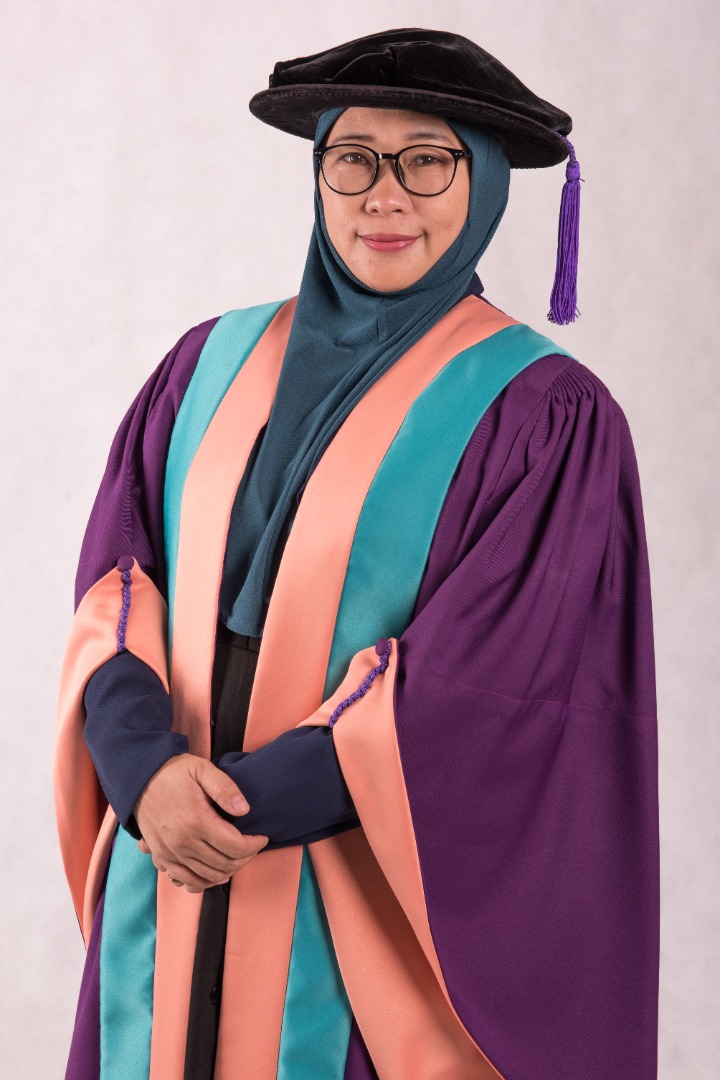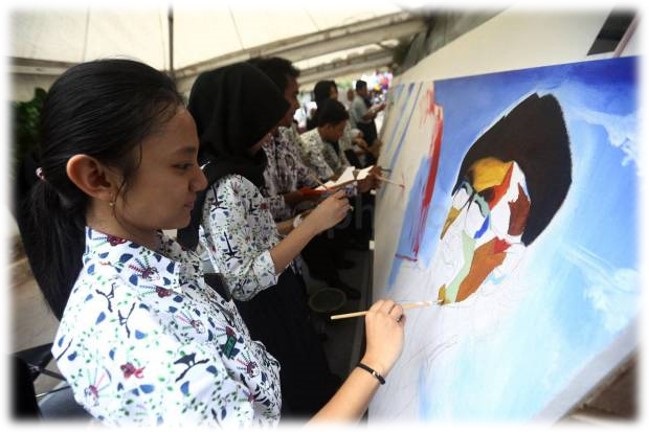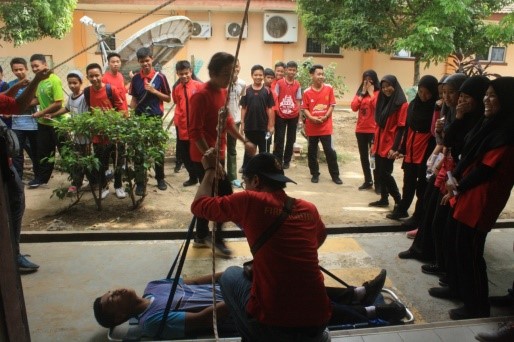
Announcement
03 Mar, 2021
15 Feb, 2021
21 Jan, 2021

Director Message
Associate Professor Dr. Jurry Foo
Centre for Co-Curriculum and Student Development
Director
e-Application
- Student
- UMS-SPRINT
- Innovation
- Co-Curriculum Carnival
- Trainer
- Offer Terms Agreement
- Various Advance Application
- Teaching Claim
- Staff / UMS JFPIB
- Transport Booking
- Facilities Reservation
- Public / Outside Agency
- Job Vacancy
- Facilities Reservation
- UMS-SPRINT Community Service
Article Resources
Let's take a look through our source of articles regarding the activities, event and news related to the Centre for Co-Curriculum and Student Development, Universiti Malaysia Sabah
EnterResearch corner
UMS Co-Curricular objectives.
Students respond information regarding co-curricular activities.
OTHER LINKS
- UMS Map
- Open Data
- Sabah State Government Portal
- Minister of Higher Education(MCHE)
- MAMPU
- MyGovernment Portal (MyGov)
- UMS Investment Holdings Sdn. Bhd.
QUICK LINKS
- Staff Directory
- Staff Portal
- Student Portal
- SmartUMS
- E-Respon
- Covid 19: UMS Update
FOLLOW US @
Youtube
Pusat Kokurikulum dan Pemajuan Pelajar,
Universiti Malaysia Sabah, Jalan UMS, 88400, Kota Kinabalu, Sabah, Malaysia
Tel : (+6088) 329032
(+6088) 320000 ext. 206500
Email : pkpp[at]ums.edu.my
TERM OF USE | DISCLAIMER | PRIVACY POLICY | SECURITY POLICY | COPYRIGHT POLICY

- Uncategorised
- Hits: 707
Kuliah Pertama Bagi Pelajar Yang Mendaftar Kursus Kokurikulum Semester 2 Sesi 2018/ 2019

- Uncategorised
- Hits: 3191
Kursus Training of Trainer (Fasilitator bagi Bengkel Kemahiran Insaniah UMS SEJATI Tahap I)
Kursus ini diadakan bertujuan untuk menyiapkan pelajar-pelajar yang bakal menjadi fasilitator bagi Bengkel Kemahiran Insaniah UMS SEJATI Tahap I.
Objektif
- Melahirkan pelajar yang berfikiran kreatif dan kritis dalam pengurusan aktiviti.
- Memupuk semangat kepimpinan dan bekerjasama dalam satu pasukan.
- Meningkatkan daya keyakinan yang tinggi dan cekal dalam menghadapi masalah.
Hasil Pembelajaran
- Dapat berfikir dengan lebih kreatif dan kritis dalam pengurusan program.
- Dapat memupuk semangat kerjasama dalam satu pasukan serta berkeyakinan tinggi.
- Dapat membezakan antara kepimpinan, kuasa dan autoriti.
- Mempunyai personaliti dengan ciri-ciri kepimpinan.
- Melahirkan rasa kesukarelawanan dalam diri mahasiswa/i.
- Uncategorised
- Hits: 856
Kuliah Pertama Bagi Pelajar Yang Mendaftar Kursus Kokurikulum Semester 2 Sesi 2019/ 2020
PENGUMUMAN
(ATTENTION)
- PELAJAR YANG MENDAFTAR KURSUS KOKURIKULUM SEMESTER 2 SESI 2019/2020.
(TO ALL STUDENT THAT REGISTERED FOR CO-CURRICULLUM COURSE THIS SEMESTER 2 2019/2020 SESSION)
- KULIAH PERTAMA AKAN DIADAKAN PADA:
(FIRST LECTURE WILL BE HELD ON:)
- TARIKH: 15HB FEBRUARI 2020 (SABTU)
(DATE: 15th FEBRUARY 2020 (SATURDAY)
- MASA: 10.00 PAGI-1.00 PETANG
(TIME: 10.00AM - 1.00PM)
- TEMPAT: BILIK KULIAH MENGIKUT KURSUS
(VENUE: LECTURED ROOM BY COURSES)
Pusat Kokurikulum & Pemajuan Pelajar
Universiti Malaysia Sabah
EK 00103 INTERIM (INSTITUTIONAL AND COMMUNAL INTERACTION)
The course structure exposes student’s capability to methods, techniques and approaches in skills of institutional and communal interaction with specific community or social group, while experiencing immediate social situation especially among peripheral community. Students will also be guided to ways of interaction with rural community, the elderly, school children and others. This course also incorporates on soft-skills enhancement in which student must actively participate in related social and community activities and programmes.
References
Ainon Mohamad dan Abdullah Hassan. (1996). Berfikir Dalam Darjah. Utusan Publication & Distributors Sdn. Bhd. Kuala Lumpur
Altaman, (1975). The Environment & Social Behavior, Books Cohen Publishing Co. California.
Bili P.S Lim. (1997). Berani Gagal. Hardknocks Factory Sdn. Bhd. Petaling Jaya.
Cohan, A.R. (1964). Attitude Change & Social Influence. Basic Books, New York.
Yassin, M. (1996). Operasi Khidmat Masyarakat. Kuala Lumpur : Utusan Melayu (M) Bhd.
EK 00203 STUDENT ORGANISATION AND MANAGEMENT
In this course, students are trained to plan and perform projects on specific activities. They are exposed to various theories and organizational management styles such as leadership, personal management, financial and marketing management. Students are also trained to prepare quality proposals, skills towards managing a meeting and proposal presentation techniques efficiently. This course also incorporates on soft-skills enhancement in which student must actively participate in related social and community activities and programmes.
References
Aminuddin Mohd Yusof. (1990). Kepimpinan. Dewan Bahasa dan Pustaka.
Brook, William T. (1994). Pengurusan Berkesan Hebat (terj.) 1995. Dewan Bahasa dan Pustaka.
George, Jeniffer M & Jones, Gareth R. (1996). Understanding and Managing Organizational Behavior. Addison-Wesley Publishing Company, Inc.
Hall, Richard H. (1996). Organizations : Structures, Processes and Outcomes. 6th ed. Prentice Hall, Englewood Cliffs, New Jersey.
Robbins, Stephen P. & Coulter, Mary. (1996). Management. Prentice Hall.
EK 00303 LEADERSHIP AND MOTIVATION
This course aims to teach students the basics and theories of leadership and organization. Students will learn proper techniques to communicate with people and to make decision. Upon completing the course, students will conduct a collaborated project with a rural community, where they will be tested on skills of managing a meeting, decision making, accomplishing tasks, preparing paperwork and implementing plans. This course also incorporates on soft-skills enhancement in which student must actively participate in related social and community activities and programmes.
References
Reeve, J. (1997). Understanding Motivation and Emotion (2nd ed.). London : Harcourt Brace College Publishers.
Bratton.J.,Grint, K., & Nelson, D.L., 2004. Organizational leadership. United States: South-Western, Thomson
Dubrin, A.J., 2000. Leadership: Research findings, practice and skills. New York: Houghton Mifflin Company
Hughes, L.W. (1994). The Principal As Leader. New York : Macmillan College Publishing Company.
Ohlsen, M.M, Horne, M.A dan Lawe, F.E. (1998). Group Counseling. New York Holt, Rinehart and Winston, Inc.
EK 00403 MOSQUE MANAGEMENT
This course aims to educate students the functions of a mosque in Islam and its significance as an effective institution to care and maintain the Islamic teachings. Students are also guided to maximize the role of a mosque by channelling the community service to public including the fardhu kifayah. from initial process to the burial; this includes the bathing, the shrouding and the praying of a body. This course also incorporates on soft-skills enhancement in which student must actively participate in related social and community activities and programmes.
References
Mohamed Sulaiman, 1995. Kepimpinan dan Pengurusan Strategik Untuk Kecemerlangan Organisasi. Universiti Sains Malaysia.
Sulaiman Endut. 1997. Asas-asas Fardhu Ain. Pustaka Hj. Abdul Majid. Kuala Lumpur
Monograph
Abdul Razak Abu Chik. (2002). Penyampaian Khutbah – Satu Pendangan. Koleksi Kertas Kerja Pengurusan Masjid JAKIM
Hj. Mohd. Sharir Hj. Abdullah, Datuk. (2002). Peranan Masjid Terhadap Pembangunan Ummah. Koleksi kertas Kerja Pengurusan Masjid JAKIM.
Hj. Wan Zahidi Wan The, Dato’. (2002). Masjid Sebagai Institusi Di Bawah Hak Sultan. Koleksi Kertas Kerja Pengurusan Masjid, JAKIM.
EK 00503 HEALTH PROMOTION (Only For Medical Student)
Health promotion module is a co-curriculum activity run by the School of Medicine. The activity is suited specifically for the student in the Medical Doctor programme. In this module the student group is expected to plan, prepare a proposal and implement the health promotion activity based on finding from rapid rural appraisal in a selected rural area. The assessment is based assessment by the group supervisor on the individual performance, group report and group presentation.
References
Cossens BJ. 1992. Preventive Medicine and Public Health. The National Medical Series for Independent Study. Harwal Publishing. Tokyo.
Tones, K. Tilford S., and Robison. 1990. Health Education: Effectiveness and Efficiency. Chapman and Hall, London.
Wass A. 1997. Promoting Health. The Primary Care Approach. WB Saunders Harcourt brace and Company.
Monograph
World Health Organisation. 1982. Primary Health care From Theory to Action. WHO Copenhagen.
World Helath Organisation. 1986. The Ottawa Charter for Health Promotion. WHO. Geneva.
EK 00603 ORATOR
Oration is a form of public speaking. In this course, students learn the thinking skill to imagine and expand ideas spontaneously. In order to develop the scope of this course and to make it more compact and dynamic (as it is a co-curriculum), the management aspects are also taught in this course. One of the content of this course is to expose students on the management procedure of activities relating to public speaking (for example, a debate, forum, oration, poetry and pantun). This course incorporates on soft-skills enhancement in which student must actively participate in related social and community activities and programmers.
References
Freely, Austin J. (1996). Argumentation and Debate : Critical Thinking for Reasoned Decision Making. Belmont : Wadsworth Publishing Company.
Hartley, Peter. 2001. Interpersonal Communication (2nd ed.). Routledge.
Hybels, Saundra, and Richard L. Weaver. 2003 Communicating Effectively. Boston : McGraw-Hill.
Patrick, Fanning, Matthew, Phd McKay, Martha Davis. 2000. Messages : The Communication Skills Book. New Harbinger Publication, Inc.
Robert , Bolton. 1988. People Skills. Simon & Schuster New York.
EK 00703 PUBLIC SPEAKING / ELOCUTION
This course aims to expose and educate students on the effective communication techniques used daily and for public speaking and elocution. Students will learn the language style and methods to choose suitable contents for public speaking. In class, students will be asked to familiarize themselves in speaking, building confidence and being smart in choosing the right words and sentence in order to convey specific meaning.
References
Freely, Austin J. 1996. Argumentation and Debate : Critical Thinking for Reasoned Decision Making. Belmont : Wadsworth Publishing Company.
Griffin, Em. 1997. A First Look at Communication Theory. New York : McGraw-Hill.
Hybels, Saundra, and Richard L. Weaver. Communicating Effectively. Boston : McGraw- Hill.
J, J. N. Jayant and Shoham. 1992. Coding of Wideband Speech : Speech Communication. McGraw-Hill
Noonan, Peggy. 1998. Simply Speaking. New York : Regan Books.
EK 00903 DEBATE
This course aims to expose and educate students on the effective communication techniques used daily and for debate. Students will learn the language style and methods to choose suitable contents for debating. In class, students will be asked to familiarize themselves in speaking, building confidence and being smart in choosing the right words and sentence in order to convey specific meaning. This course also incorporates on soft-skills enhancement in which student must actively participate in related social and community activities and programmes.
References
Freely, Austin J., 1996. Argumentation and Debate : Critical Thinking for Reasoned Decision Making. Belmont: Wadsworth Publishing Company.
Hybels, Saundra, and Richard L. Weaver. Communicating Effectively. Boston: McGraw-Hill.
J, J. N. Jayant and Shoham, 1992. Coding of Wideband Speech: Speech Communication
Noonan, Peggy, 1998. Simply Speaking. New York: Regan Books.
Abdullah Hassan Ainon Mohd, 2008. Teori dan teknik ucapan berpengaruh, Edisi Kemas Kini, PTS Millennia Sd. Bhd
- Last Modified: Monday 01 July 2024.






